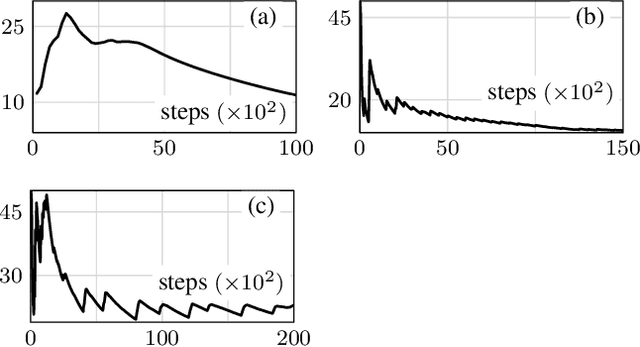Neural Time-Reversed Generalized Riccati Equation
Paper and Code
Dec 14, 2023



Optimal control deals with optimization problems in which variables steer a dynamical system, and its outcome contributes to the objective function. Two classical approaches to solving these problems are Dynamic Programming and the Pontryagin Maximum Principle. In both approaches, Hamiltonian equations offer an interpretation of optimality through auxiliary variables known as costates. However, Hamiltonian equations are rarely used due to their reliance on forward-backward algorithms across the entire temporal domain. This paper introduces a novel neural-based approach to optimal control, with the aim of working forward-in-time. Neural networks are employed not only for implementing state dynamics but also for estimating costate variables. The parameters of the latter network are determined at each time step using a newly introduced local policy referred to as the time-reversed generalized Riccati equation. This policy is inspired by a result discussed in the Linear Quadratic (LQ) problem, which we conjecture stabilizes state dynamics. We support this conjecture by discussing experimental results from a range of optimal control case studies.
 Add to Chrome
Add to Chrome Add to Firefox
Add to Firefox Add to Edge
Add to Edge